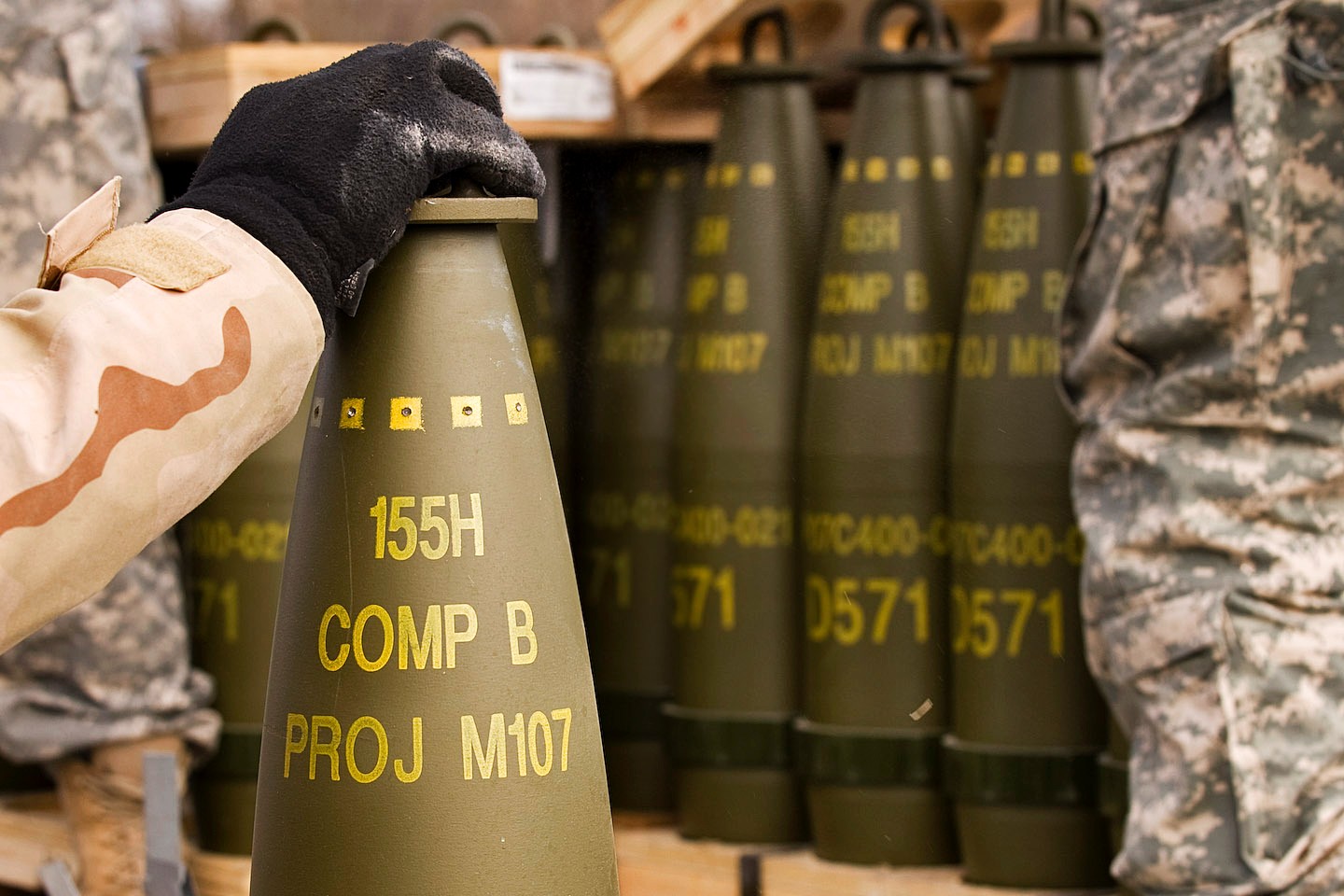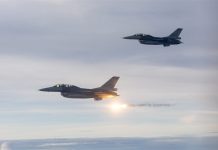As Ukraine stares at a burgeoning need for artillery shells, there is an indication that NATO ally Germany will transfer as many as 200,000 artillery shells to Kyiv’s Armed Forces in 2024.
The claim was made by Carsten Breuer, the German Armed Forces’ Inspector General, according to reports in local Ukrainian media that cited the Frankfurter Allgemeine Sonntagszeitung.
“Germany will be able to deliver almost 200,000 artillery shells next year. I think this is a significant part of the planned million,” Carsten Breuer said. EurAsian Times could not independently verify these claims.
The German government, on its part, has not made an official announcement in this regard. However, these claims came when Germany expanded the production of artillery shells to meet the growing demand in Ukraine.
Last week, Germany handed over its latest delivery of military aid to Ukraine, which included vehicles, drones, and artillery shells, among a host of other equipment. Moreover, German defense manufacturer Rheinmetall recently won an unnamed NATO state’s US$153.7 million contract to produce artillery shells for Ukraine.
Germany has delivered a new package of military aid to #Ukraine.
It includes:
• 1 Luna NG UAV;
• 10 Vector UAVs;
• 16 Mercedes-Benz Zetros;
• 6 vehicles for border guards;
• 70 HK GMG/GMW (automatic grenade launcher);
• 250 shells 155mm artillery ammunition;
• 100,000… pic.twitter.com/vW68zdVTK1— Tucson Fella 🇺🇦 🇮🇱 🇺🇸 (@NakedPueblo63) December 9, 2023
According to an announcement made by Rheinmetall, the contract comprises tens of thousands of NATO standard 155mm ammunition with an anticipated delivery of 2025. It will be manufactured by a Spanish company called Rheinmetall Expal Munitions.
“The order encompasses tens of thousands of complete 155mm artillery shells, including the projectile, fuse (for the explosive charge), propellant, and primer (for igniting the propellant). The customer is a NATO partner nation whose declared intention is to support Ukraine in its defensive struggle with effective long-term military aid,” the manufacturer said in a press statement.
From an earlier order, the production and delivery of about 40,000 rounds to Ukraine are already scheduled for 2024. In addition, the German government ordered almost 100,000 rounds of 155mm ammunition from Rheinmetall as recently as mid-October 2023, with the ammunition designated for Ukraine.
In March this year, the European Union (EU) made a “historic decision” to supply a million 155-mm rounds to Kyiv within a year. However, German Defense Minister Boris Pistorius warned last month that the pledge to provide Ukraine with a million artillery shells by March 2024 would not be met.
Earlier this month, media reports citing people familiar with the matter stated that just 60,000 artillery shells had been ordered by European Union nations in line with the EU plan to supply a million rounds of ammunition to Ukraine by the spring of next year.
This revelation has been a dampener since the program was the centerpiece of an EU effort to increase Ukraine’s supply of essential 155mm artillery shells, enabling nations to make orders with manufacturers through contracts arranged by the European Defence Agency (EDA) of the bloc.
Against that backdrop, if the alleged claims made by Carsten Breue are valid, Berlin may cover up for the prevailing shortage of artillery shells, which is said to be hampering operations at the frontline. In the past, President Volodymyr Zelensky had noted that a lack of arms and supplies was one of the reasons this year’s much-awaited counter-offensive did not begin sooner.
If Germany can significantly ramp up the production and delivery of artillery shells to Kyiv’s forces, as claimed by recent reports, it would challenge the number of artillery shells allegedly supplied by South Korea. Recent reports have suggested South Korea indirectly provided more shells for Ukraine than all European countries combined.
Controversy Over South Korean Artillery Transfer To Ukraine
Due to its “indirect” donation of 155-mm artillery shells this year, South Korea is now providing more ammunition to the war-torn nation of Ukraine than all of Europe combined, according to a Washington Post (WP) report published earlier this month.
In a report on Russia’s protracted war against Ukraine, the publication revealed Washington’s efforts to secure ammunition from South Korea when its shell production accounted for no more than 10 percent of the roughly 90,000 shells that Ukraine needed each month.
According to the WP, US officials attempted to convince Seoul to deliver munitions despite South Korean law prohibiting the transfer of weapons to combat zones. They estimated that roughly 330,000 155-mm shells could be transferred from Korea by air and sea in 41 days. However, the report did not specify the number of shells that Seoul had moved.
“Senior administration officials had been speaking with counterparts in Seoul, who were receptive as long as the provision was indirect,” the WP reported. “The shells began to flow at the beginning of the year, eventually making South Korea a larger supplier of artillery ammunition for Ukraine than all European nations combined.”
So it was real.
"South Korea is the largest supplier of shells to Ukraine, after the United States" Washington Post.
The publication notes that the country delivered more shells than the entire European Union, and did it in just 41 days. more than three hundred thousand 155mm… pic.twitter.com/CiOBTWdXY8— ハク Mason (@mason_8718) December 7, 2023
It’s also unclear if South Korea contributed weaponry directly for use in combat in Ukraine or if Korea helped the United States replenish its stockpiles after the United States transferred the shells to Ukraine.
This latest revelation comes in the wake of several reports this year that suggested that the US was turning to its allies to acquire artillery shells that could be directed at Ukraine. For instance, reports in April said South Korea and the US have agreed to provide the US 500,000 rounds of 155mm artillery shells, which may allow Washington more leeway in arming Ukraine.

On its part, Seoul has insisted that it will not be giving Ukraine immediate access to deadly weaponry. In response to the WP report, the South Korean Defense Ministry stated that Seoul is not sending any lethal arms to Ukraine.
“Our government’s position has not changed one bit. As we have repeatedly said, our armed forces only provide humanitarian aid and military items,” Defense Ministry Spokesperson Jeon Ha Kyu said.
Having said that, as the back and forth on the production and delivery of artillery shells continue, Ukraine has decided to take charge and produce the 155mm artillery shells in collaboration with two American firms for use in the future. The production, however, is expected to start at least after two years.
- Contact the author at sakshi.tiwari9555(at)gmail.com
- Follow EurAsian Times on Google News




